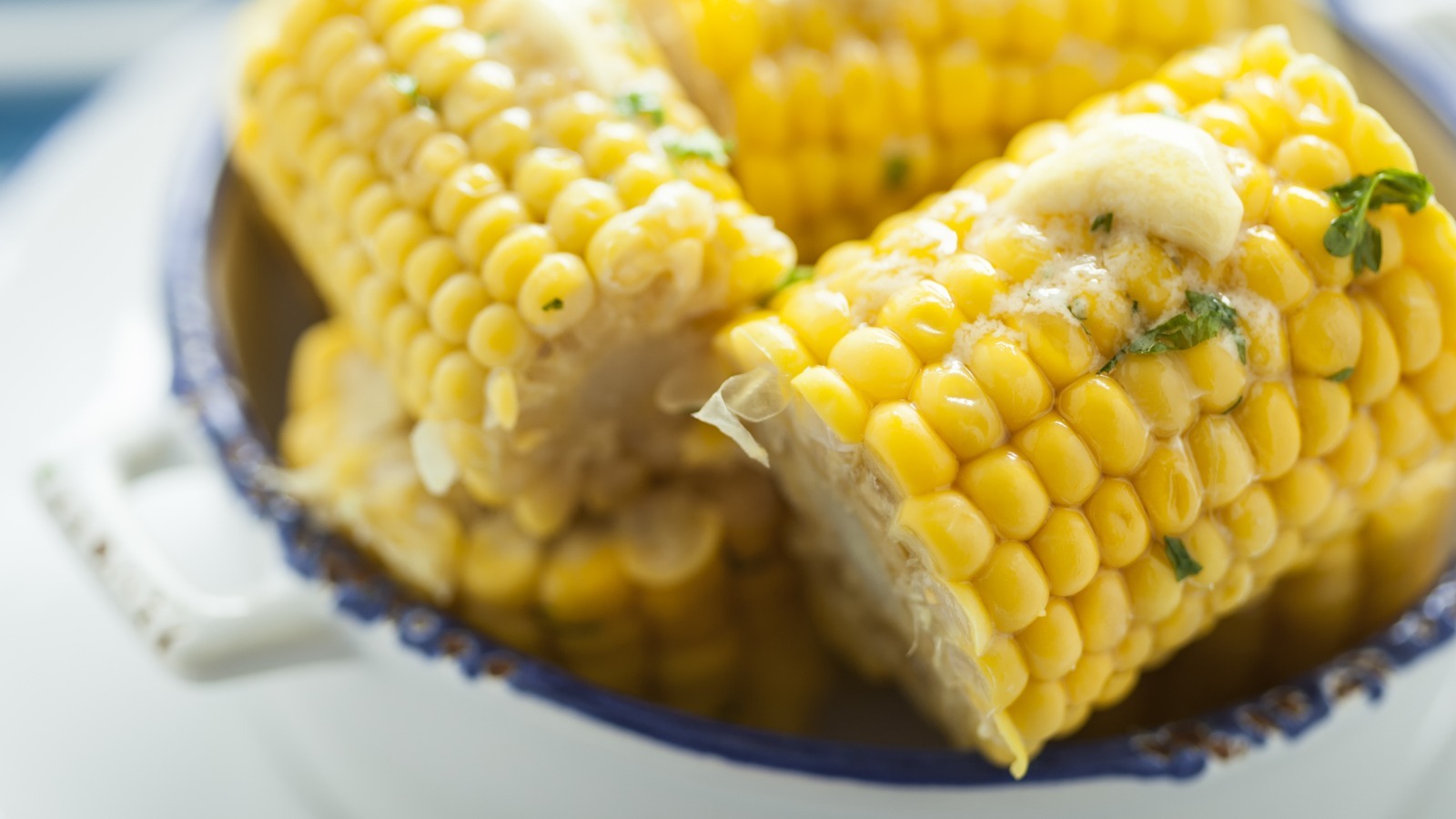If corn on the cob makes a frequent appearance at your dinner table, you've likely heard the conventional wisdom that salting the boiling water can yield tough corn. I'd say this is an old wives' tale, but it's more of an old culinary scientists' tale. It does make some kind of weird sense — after all, salt draws out moisture.
That's what makes your properly brined eggplant Parmesan the perfect texture. But when it comes to boiling corn on the cob, this no-salt warning is nonsense. To be sure, brining corn is a terrible idea — it results in a shriveled, unpleasant wreck of a veggie.
But brining typically takes a while, up to several hours. Your boiled corn, on the other hand, will probably be in the boiling liquid for 30 minutes max, depending on your method. Neglecting to salt the water just results in underwhelming corn with a less-satisfying flavor.
That's unfortunate enough when you're talking store-bought corn on the cob. But the big, gorgeous, husk-on corn that comes from your local farmers market or agriculturally gifted neighbor deserves better. Why salting the water matters It's Cooking 101: Salt makes everything taste like its best self.
But that's most true when your food gets the opportunity to let the salt become a part of it on a molecular level. Food with salt sitting on the outside tastes like food with salt sitting on the outside. No one who's ever had a fresh, hot chocolate chunk cookie topped with flaked salt can tell you that's a bad thing.
But make no.

















